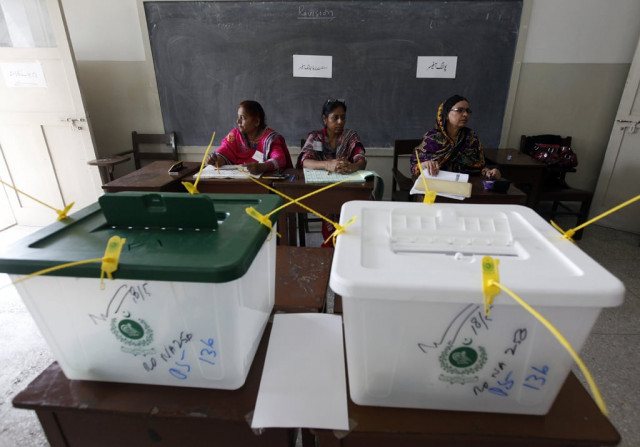Electoral reforms: Panel recommends more powers for ECP
Proposes amendments in electoral laws, enabling the poll body to have more control over staff .

After months of wrangling, a parliamentary panel on electoral reforms on Tuesday agreed to hand over administrative control to the top poll supervisory body over returning officers (RO), polling staff and on duty security personnel.
In its meeting, the sub-committee on electoral reforms proposed amendments in the election laws, empowering the Election Commission of Pakistan (ECP) to have control over polling officials.
“ECP would be empowered to take necessary action against misconduct of returning officers, electoral staff and law enforcement personnel directly,” Minister for Science and Technology Zahid Hamid, who heads the sub-committee, told reporters after the panel’s in-camera meeting.

The eight-member panel, comprising lawmakers from both sides of the aisle, is vetting and finalising recommendations for reforming the country’s electoral process which has been tainted with allegations of massive vote fraud.
The poll body had sought effective control over staff, including returning officers, district returning officers and presiding officers in a bid to make the electoral processes transparent and credible.
Over 1,200 recommendations were put forward by various stakeholders to the 33-member parliamentary panel on electoral reforms headed by Finance Minister Ishaq Dar.
Subsequently, the parliamentary panel constituted a sub-committee to finalise the electoral reforms package, which would recommend amendments in the Constitution and election laws to revamp the outdated electoral system in the country.
Facing criticism from political quarters for its failure to conduct last year’s general election fairly, the poll had thrown the ball in parliament’s court, seeking legislation to boost the scope of its powers, so punitive action could be initiated against those guilty of electoral fraud in the future.
While the ECP can appoint such officers, the current framework does not allow the poll body to take any action against them.
In the aftermath of the 2013 general elections, political parties have criticised the conduct of returning officers, accusing them of tampering election results.

Under the existing law, despite complaints against any member of its polling staff, the ECP can only refer the matter to the department they have been deputed from for election duties.
Similarly, personnel of the law enforcement agencies employed during election do not fall under ECP’s authority and in case of any misconduct, the commission can only file a complaint against them with their parent department.
ECP officials believe that the lack of authority had prevented the body from practically having administrative control over those officials who conduct elections on the ground.
The poll body has claimed that legislative constraint had restricted its authority and barred it from initiating action against the ROs and other polling staff.
If implemented, the sub-committee’s proposed amendments would enable the poll body to exert direct control over polling staff, allowing it to initiate punitive action against those found guilty of manipulating election results.
Published in The Express Tribune, November 19th, 2014.



















COMMENTS
Comments are moderated and generally will be posted if they are on-topic and not abusive.
For more information, please see our Comments FAQ